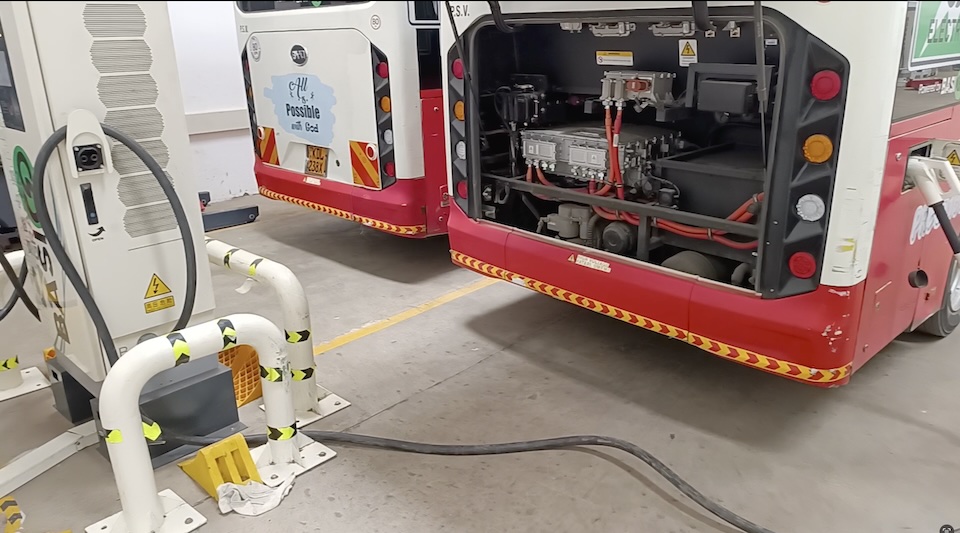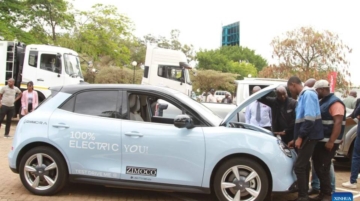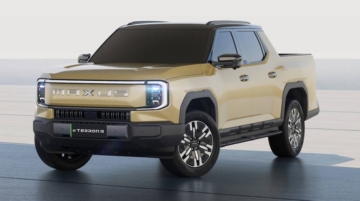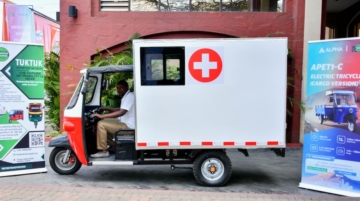
This is a free preview of the upcoming Africa EVs Weekly Digest, part of the new CGSP Intelligence service launching in Summer 2025.
China’s new electric vehicle (EV) exports to Africa are still lagging, as the regional market remains peripheral due to limited spending power.
Ironically, the second-hand market is booming in these countries where the price of vehicles as old as ten years is almost the same as buying a new one. Many African governments maintain tight restrictions on new vehicle imports, primarily through steep taxation. Yet, with little or no local manufacturing to offset the shortage, consumers are left with few affordable options, forcing them to rely on second-hand vehicles to meet their transportation needs.
The latest data from China this week shows that the trend is not about to change soon.
This week on EVs in Africa:
Chinese Car Exports to The UAE Surge in First Half of 2025
China’s car exports to the United Arab Emirates also climbed 59 percent to 214,300 vehicles, driven by increased shipments from manufacturers such as Geely. The UAE’s growing role as a regional distribution hub helped further boost Chinese auto imports into the Middle East.
Exports to Mexico jumped 31 percent, making it the top overseas market, but no African country made it to the top ten, according to the latest report by Chinese auto data provider Yiche.
Why This Matters: In a few years, most of the vehicles being shipped to the UAE will find their way into the African market. Countries like Nigeria, Kenya, Ghana, Tanzania, Uganda, the Democratic Republic of Congo, Angola, Cameroon, and Mali source some of their second-hand vehicles from the UAE.
Kenya’s BasiGo Deploys 100th Locally Assembled e-Bus
BasiGo just marked a significant step in the East African region with the rollout of its 100th electric bus.
The Kenyan company, which started in 2022 with just two buses imported from China, is steadily expanding its fleet to serve commuters in Kenya and Rwanda.
BasiGo integrates its buses into existing transit networks backed by a Pay-As-You-Drive financing model, designed to increase e-bus ownership. Buyers pay an initial deposit and the rest in installments as they operate the vehicles.
Why This Matters: Some African countries are pushing for local EV manufacturing, with assembly becoming the entry point for these operations. BasiGo employs locals, creating jobs in the EV value chain and proving that local assembly and manufacturing are possible with an enabling policy and structural environment.
Tariffs Push BYD to Deepen its African EV Market
BYD, the world’s largest electric vehicle manufacturer, is deepening its presence in Africa through strategic partnerships, infrastructure investment, and supply chain development.
The move is aimed at securing a dominant role in the continent’s emerging EV market.
In countries like Kenya and South Africa, the Chinese automaker is working with local firms to build infrastructure, transfer technology, and establish itself not merely as a supplier but as a long-term partner in Africa’s electric mobility transition.
Why This Matters: BYD could gain a first mover advantage if it moves fast, as African governments are pushing for local manufacturing and reduced reliance on imports. However, the speed at which these partnerships materialize will determine the success of the regional companies they partner with.
Chinese car sales continue to rise in SA
The growing popularity of Chinese vehicles in South Africa is reshaping consumer attitudes, driven not only by competitive pricing but also by the value offered, ranging from advanced technology to modern design and increasingly recognizable brands.
As more Chinese automakers eye entry into the South African market, Chery and Great Wall Motor (GWM) have emerged as the top-selling brands as of June, reflecting a shift in buyer preferences and market dynamics.
Why This Matters: South Africa provides clues as to what can work (or not) across Africa. The country has a vibrant vehicle industry, and what happens with the Chinese EVs will act as a guiding light for competitors seeking to gain a share of the larger African market.
In Context
While Africa continues to lag in electric vehicle adoption, there are signs of progress. Across the continent, innovators are responding to local challenges with homegrown solutions, an approach now extending to e-mobility.
The takeaway: In several countries, partnerships with Chinese EV manufacturers are enabling African firms to adapt and localize technology, signaling a distinctly African path toward electrified transport.







